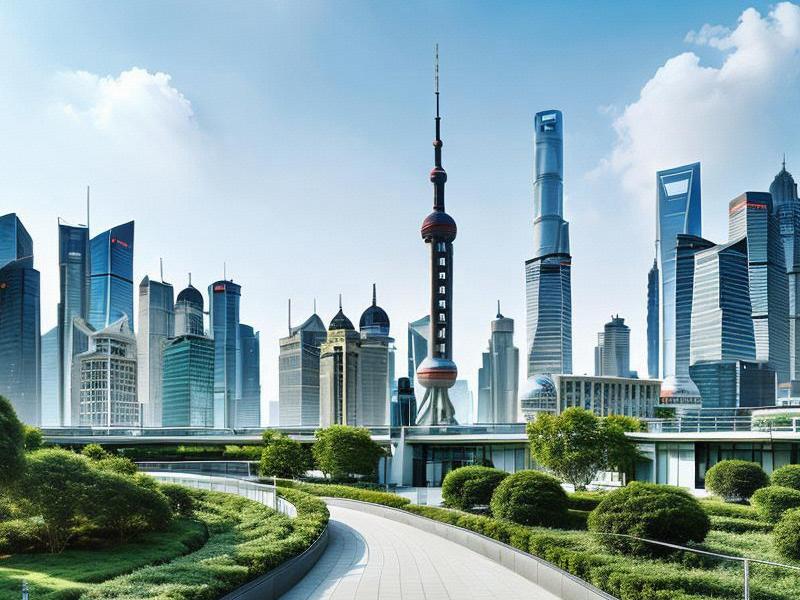
Shanghai, the bustling metropolis on the banks of the Huangpu River, has long been a symbol of China's economic prowess. Over the past few decades, it has evolved from a manufacturing powerhouse to a global center for finance, trade, and now, innovation. This transformation is not just a testament to Shanghai's adaptability but also a reflection of China's broader aspirations to lead in the global technology race.
The journey began in the late 20th century when Shanghai started to modernize its economy. The establishment of the Pudong New Area in 1990 was a pivotal moment. This once-rural area became a symbol of China's reform and opening up, with skyscrapers and state-of-the-art infrastructure springing up almost overnight. Pudong's success laid the groundwork for Shanghai's ambition to become a global financial center, which it achieved in 2020 when the Shanghai Stock Exchange's STAR Market was officially launched.
However, Shanghai's story does not end with finance. In recent years, the city has been making significant strides in the realm of technology and innovation. The Chinese government's Made in China 2025 initiative, aimed at upgrading the country's manufacturing sector through advanced technologies, has seen Shanghai emerge as a key player. The city has invested heavily in sectors such as artificial intelligence (AI), biotechnology, and new energy vehicles (NEVs).
One of the most striking aspects of Shanghai's innovation ecosystem is its vibrant startup scene. The city is home to numerous incubators, accelerators, and venture capital firms that are nurturing the next generation of tech companies. Areas like Zhangjiang Hi-Tech Park and Jiaotong University Science Park have become hotspots for startups, attracting talent and investment from around the world.
爱上海同城419 The success of these startups is evident in the number of unicorns—private companies valued at over $1 billion—that have emerged from Shanghai. Companies like ByteDance, which operates the popular social media platform TikTok, and NIO, an electric vehicle manufacturer, are just a couple of examples. These companies are not only driving innovation within China but are also making significant contributions to the global technology landscape.
Shanghai's universities and research institutions play a crucial role in this ecosystem. Institutions like Fudan University and Tongji University are at the forefront of research in fields such as AI, biotechnology, and materials science. Their partnerships with industry leaders and startups ensure that cutting-edge research is translated into real-world applications.
The city's government has also been proactive in fostering innovation. The Shanghai Municipal People's Government has implemented various policies to support startups and tech companies. These include tax incentives, funding for research and development, and streamlined regulatory processes. The city's leadership understands that a thriving innovation ecosystem is essential for maintaining Shanghai's competitive edge in the global arena.
One of the key factors behind Shanghai's success is its ability to attract and retain talent. The city offers a high quality of life, with world-class amenities, cultural experiences, and educational opportunities. This has made it a magnet for international professionals and students. The influx of talent has been instrumental in driving innovation and ensuring that Shanghai remains at the forefront of technological advancements.
上海龙凤论坛419 The transformation of Shanghai into a global innovation hub is not without challenges. The city faces intense competition from other global cities such as Silicon Valley, Bangalore, and Singapore. Additionally, issues such as intellectual property protection, cybersecurity, and the need for continuous skill development are critical areas that require attention.
Despite these challenges, Shanghai's commitment to innovation is unwavering. The city is investing in infrastructure, education, and research to ensure that it remains a leader in the global technology race. The recent launch of the Shanghai International Technology Innovation Center is a testament to this commitment. This center aims to foster collaboration between domestic and international innovators, providing a platform for knowledge exchange and technology transfer.
Shanghai's journey to becoming a global innovation hub is also closely tied to China's broader goals of achieving technological self-sufficiency. The trade tensions with the United States have underscored the importance of developing indigenous technologies. Shanghai, with its advanced research facilities and skilled workforce, is well-positioned to play a leading role in this endeavor.
上海喝茶服务vx The city's focus on innovation extends beyond technology to include social and environmental sustainability. Initiatives such as the construction of green buildings, the promotion of electric vehicles, and the development of smart city solutions are aimed at creating a more sustainable urban environment. These efforts are part of Shanghai's broader strategy to balance economic growth with environmental stewardship.
The impact of Shanghai's innovation drive is being felt across the globe. The city's tech companies are increasingly making inroads into international markets, contributing to the global economy. At the same time, Shanghai is attracting foreign investment and talent, further cementing its position as a global hub.
In conclusion, Shanghai's transformation into a global innovation hub is a story of ambition, resilience, and adaptability. The city's journey from a manufacturing powerhouse to a leader in technology and innovation is a testament to its ability to embrace change and seize opportunities. As Shanghai continues to innovate and evolve, it is not just reshaping its own future but also contributing to the global narrative of progress and prosperity.
